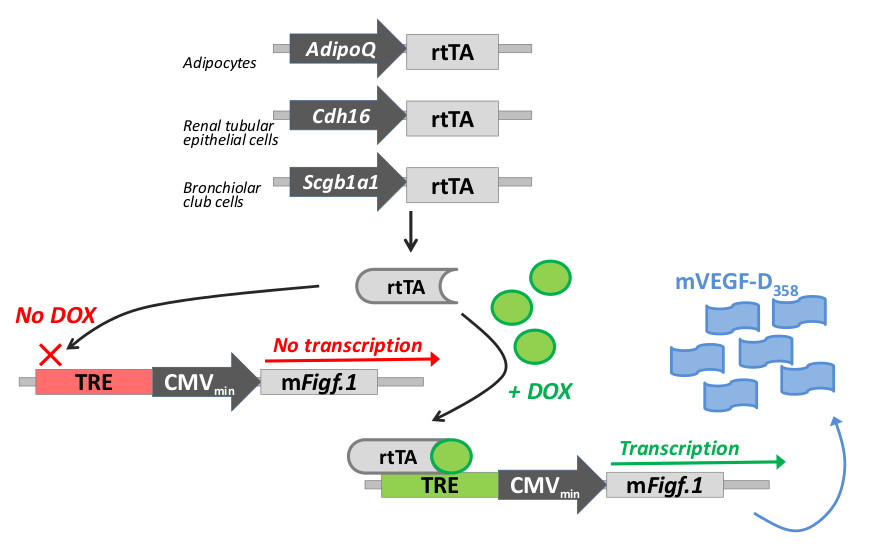
In vivo models of inducible protein expression
The laboratory makes use of in vivo models of inducible protein expression or deletion using the “Tet-On” system to manipulate cell biology and tissue physiology in the adult. The transgene system utilized promoters that are specific to a cell/tissue to regulate the localization of induction. In the above example, promoters that localize rtTA expression to adipose tissue, the kidney, or the lung are used to drive local overexpression of the lymphangiogenic murine protein VEGF-D. We can then study the effects of, in this case, local lymphatic hyperplasia on tissue fluid balance and organ function.
In vivo models of protein deletion
Using the classical cell-specific Cre system, we are targeting the basic cell biology of lymphatic enodthelial cells or the predominant cells in lymphatic-rich tissues in vivo to probe the impacts of cell signaling, transport, and/or metabolism on fluid and metabolite transport.
Research Funding
| Project name | Funding source | Type | Current status | Principal researcher |
|---|---|---|---|---|
| Inducible lymphatic hyperplasia to drive chylous accumulation mimicking lymphangiomatosis | University of Pennsylvania Orphan Disease Center Million Dollar Bike Ride Grant Program | Pilot Grant | Completed | Joseph M. Rutkowski |
| Lymphatic circulation: regulator of adipose tissue metabolism | American Heart Assocation | Scientist Development Grant | Completed | Joseph M. Rutkowski |
| Adiponectin transport: endothelial modulation of adipokine function | NIH/NIDDK | Postdoctoral Fellowship | Completed | Joseph M. Rutkowski |